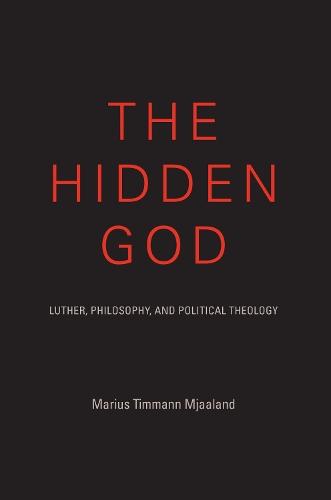Overview
In this phenomenological reading of Luther, Marius Timmann Mjaaland shows that theological discourse is never philosophically neutral and always politically loaded. Raising questions concerning the conditions of modern philosophy, religion, and political ideas, Marius Timmann Mjaaland follows a dark thread of thought back to its origin in Martin Luther. Thorough analyses of the genealogy of secularization, the political role of the apocalypse, the topology of the self, and the destruction of metaphysics demonstrate the continuous relevance of this highly subtle thinker.rabbi
Full Product Details
Author: Marius Timmann Mjaaland
Publisher: Indiana University Press
Imprint: Indiana University Press
Dimensions:
Width: 15.20cm
, Height: 1.80cm
, Length: 22.90cm
Weight: 0.490kg
ISBN: 9780253018168
ISBN 10: 0253018161
Pages: 248
Publication Date: 15 November 2015
Audience:
General/trade
,
General
Format: Hardback
Publisher's Status: Active
Availability: In Print

This item will be ordered in for you from one of our suppliers. Upon receipt, we will promptly dispatch it out to you. For in store availability, please contact us.
Reviews
Mjaaland . . . provides a dazzlingly, provocative exploration of the political implications of Luther's theological method and scriptural exegesis. * Journal of Lutheran Ethics * Original research... which offers new perspectives. * Norwegian Teologisk Tidsskrift * While at one level this book advances a fairly technical and focused argument about Luther, it is profound and wide-ranging in its insights and implications. It deserves to be carefully read by anyone with deep interests in theology, philosophy, and politics. * Political Theology * Challenging the mutual exclusivity of theology and philosophy, Mjaaland links Luther to Nietzsche, Marx, Heidegger, and Derrida, highlighting connections between destruction and deconstruction, and showing how philosophy, politics, and theology converge in Luther's radical critique of religion. Recommended. * Choice * This is a bold work of philosophical theology. * Reading Religion * An important book on Luther's Hidden God and the nature of modernity. . . . [T]his work should be considered by Luther scholars of all stripes, especially those interested in Luther's theology and its relationship to modernity. * Lutheran Quarterly *
This is a bold work of philosophical theology. -Reading Religion Challenging the mutual exclusivity of theology and philosophy, Mjaaland links Luther to Nietzsche, Marx, Heidegger, and Derrida, highlighting connections between destruction and deconstruction, and showing how philosophy, politics, and theology converge in Luther's radical critique of religion. Recommended. -Choice Mjaaland... provides a dazzlingly, provocative exploration of the political implications of Luther's theological method and scriptural exegesis. -Journal of Lutheran Ethics Original research... which offers new perspectives. -Norwegian Teologisk Tidsskrift Mjaaland reveals a radical Luther whose break with prior metaphysics sowed the seeds for deep cultural stuggles into the future in ways that came to frighten even Luther himself. -Paul S. Rowe, author of Religion and Global Politics
Mjaaland reveals a radical Luther whose break with prior metaphysics sowed the seeds for deep cultural stuggles into the future in ways that came to frighten even Luther himself. Paul S. Rowe, Trinity Western University
Mjaaland reveals a radical Luther whose break with prior metaphysics sowed the seeds for deep cultural stuggles into the future in ways that came to frighten even Luther himself. Paul S. Rowe, author of Religion and Global Politics
While at one level this book advances a fairly technical and focused argument about Luther, it is profound and wide-ranging in its insights and implications. It deserves to be carefully read by anyone with deep interests in theology, philosophy, and politics. * Political Theology * This is a bold work of philosophical theology. * Reading Religion * Challenging the mutual exclusivity of theology and philosophy, Mjaaland links Luther to Nietzsche, Marx, Heidegger, and Derrida, highlighting connections between destruction and deconstruction, and showing how philosophy, politics, and theology converge in Luther's radical critique of religion. Recommended. * Choice * An important book on Luther's Hidden God and the nature of modernity. . . . [T]his work should be considered by Luther scholars of all stripes, especially those interested in Luther's theology and its relationship to modernity. * Lutheran Quarterly * Mjaaland . . . provides a dazzlingly, provocative exploration of the political implications of Luther's theological method and scriptural exegesis. * Journal of Lutheran Ethics * Original research... which offers new perspectives. * Norwegian Teologisk Tidsskrift *
Author Information
Marius Timmann Mjaaland is Professor for Philosophy of Religion at the University of Oslo. He is author of Autopsia: Self, Death, and God after Kierkegaard and Derrida.




